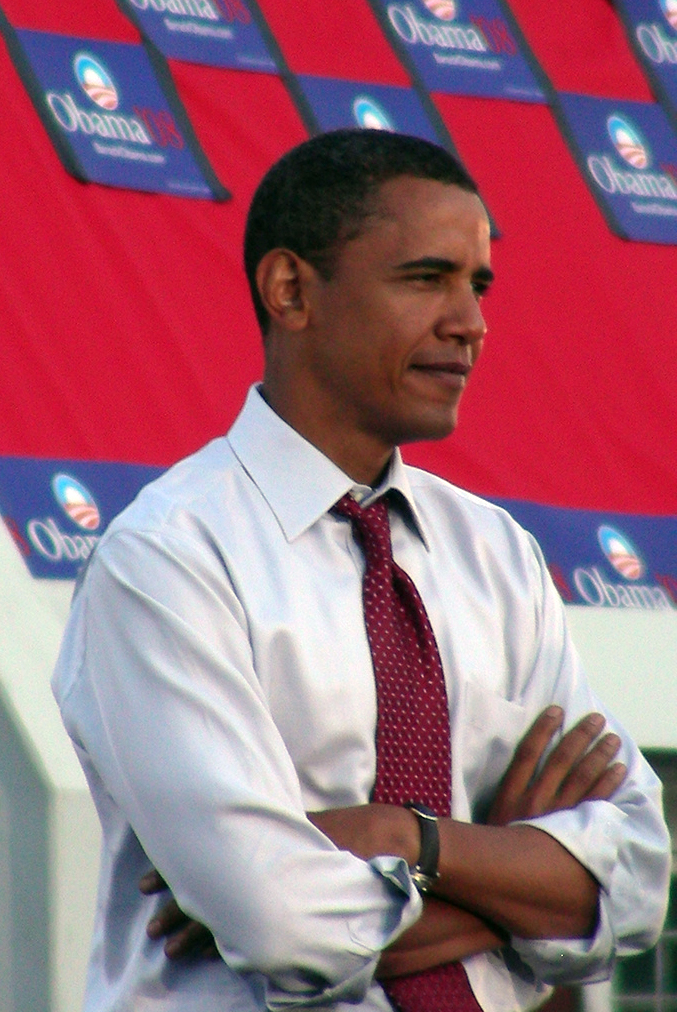Kevin Drum asks and answers a question.
[I]t's possible, even likely, that these professionals aren't abusing the data they've collected. Not yet, anyway. But does Obama really think that a government that collects this kind of stuff won't abuse it eventually? That's vanishingly unlikely.
 |
| Drum wants to know what Obama really thinks and when he really thought it. |
That strikes me as an odd assertion for three reasons:
1. You'd think, with that degree of certainty, that Drum is thinking about some particular examples. But I know a lot of history and I can't think of any. There have been lots and lots and lots of governments that collected information on their people *and* abused that information, but normally they go hand and hand. It's not like the communists in Russia created the Cheka, it gathered lots of information about people, and over time its resolve weakened and it started using the info to aid in torturing and imprisoning innocent Russians. It tortured and imprisoned them right out of the gate. Just so, it's not like the FBI got the power to wire tap and then used it responsibly for decades before ultimately backsliding. It was bugging political dissidents from early in its history.
On the flip side, you can think of intelligence gathering operations that have been going on for a while without any abuse scandals. Just off the top of my head, ECHELON has been targeting foreigners since before PRISM was a glint in some spook's eye, and as far as I know it has never been credibly accused of abusing its power to go after Americans.
2. I think it's just obviously wrong. As I tried to make clear in my last post, simply keeping the government from gathering information is our first and weakest line of defense when it comes to keeping the government from abusing that information, so the government getting the information does not mean that the war is lost and abuses are right around the corner. In America, even when the government can collect info in secret, most of the things it does to us -- tax us, seize our property, imprison us -- happen openly and can be challenged in court, where secret information gathered without due process can be disallowed (the exclusionary rule) or, at least, exposed. The scary stuff is the supreme court making loop holes in the exclusionary rule or congress letting people be convicted with secret evidence or the states secret privilege letting abusive government actors avoid court. The least scary stuff is the mere fact that the government is gathering information (duh, of course they are. They have been for decades). I'll say it again: the government gathering secrets is not as scary as the government using secrets, which is not as scary as the government using secrets in secret.
3. The government is probably not doing anything illegal with these programs. So I think it is a bit brazen to claim that illegal or unconstitutional abuses are a natural follow up.
***
So yeah, my point is A. If you don't think the government is abusing these programs, it's not inevitable that it will, B. The news of this week shouldn't adjust anyone's priorities. The government gathering information is not nearly as scary as lots of the assaults on due process we already knew were happening. The key to surviving the information age with our liberties intact is not going to be locking down the flow of information to the government (or to anywhere else, for that matter. Remember, the government isn't even invading our privacy with these programs, it's invading the privacy of companies we merrily gave access to our private information without a second thought. Privacy is dying at our hands, not government's, and it's futile to imagine a world where we freely distribute and share our secrets but the government politely looks the otherway). Rather, preserving our liberties will depend on 1. Maintaining (and expanding) a robust exclusionary rule for private information gathered without probable cause, while also expanding the definition of privacy to be more along the lines of "the stuff we work really hard to keep secret" as opposed to "the stuff, if there is any, we can actually keep secret," and 2. maintaining (and expanding) our ability to challenge government takings and restraints on speech in open court.

No comments:
Post a Comment